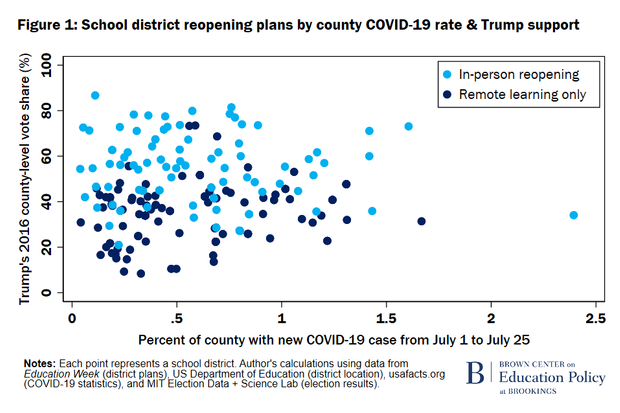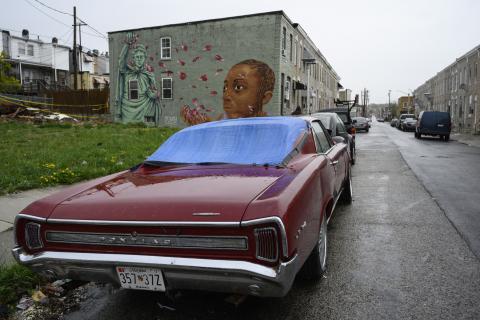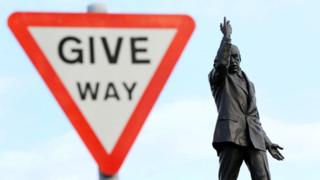 Image copyright Getty Images
Image copyright Getty ImagesThe political year in Northern Ireland saw drama, tragedy and flickers of hope, all played out against the depressingly familiar backdrop of stalemate at Stormont.
The saga of Brexit, documented elsewhere on this website by my colleague John Campbell, provided the context for the steady demise of the DUP’s parliamentary affair with, first, Theresa May and then, Boris Johnson.
Back at home, a mixture of concern about that Westminster alliance, the implications of Brexit for cross-border relations and impatience over the absence of devolution led to what looked like a shift towards the centre ground in three successive elections.
In April, shortly after the 21st anniversary of the Good Friday Agreement, a talented young journalist was murdered by republican dissidents while observing a riot in Londonderry. Politicians denounced the senseless killing of Lyra McKee, hit by a bullet aimed at a PSNI Land Rover.
However, a priest used his sermon at Ms McKee’s funeral to call them out.
Mourners applauded Fr Martin Magill as he asked why “in God’s name” it had taken “the death of a 29-year-old woman with her whole life in front of her” to get political opponents to stand together on a platform on Good Friday?
The parties renewed their talks process, but despite warm words on all sides there was no breakthrough in their long-running dispute over issues including Irish language legislation and reforming Stormont.
The month after Ms McKee’s murder the voters gave their verdict on the local parties in council elections.
Alliance, the Greens and the left wing People Before Profit made significant advances. Later that month, in the European elections, the Alliance leader Naomi Long secured a breakthrough, becoming her party’s first MEP after campaigning on a platform of opposing Brexit.
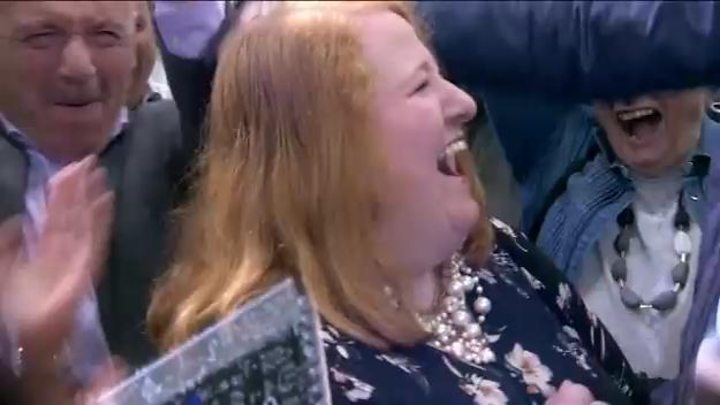
Media playback is unsupported on your device
Previously, Northern Ireland had always been represented by one nationalist and two unionist MEPs.
Even though Brexit meant the new DUP, Sinn Féin and Alliance MEPs’ term in office was always likely to be short, Mrs Long’s victory at the expense of the Ulster Unionists seemed to point to a new political balance in the wake of the debate over Brexit.
The European election also saw the veteran Ulster Unionist MEP Jim Nicholson bow out of politics. He was by no means the only familiar face to leave the scene during 2019, although not all the departures were voluntarily.
Stepping down
Two former Stormont finance ministers quit the world of frontline politics. The DUP’s Simon Hamilton had been associated with a failed attempt to negotiate a deal in 2018 and was widely known to differ with his party over Brexit. Once viewed as a rising star in the DUP, he opted for a new career with the Belfast Chamber of Commerce.
Sinn Féin’s Máirtín Ó Muilleoir also announced his departure. The South Belfast MLA said it was the right time to hand over to younger Irish republicans and denied he was getting out prior to any criticism he might face in the forthcoming report from the judicial inquiry into the Renewable Heat Scandal.
The biggest turnover in political personalities, however, came with the snap Brexit election called by Boris Johnson in December.
For much of the year the DUP deputy leader Nigel Dodds had been among the most ubiquitous figures in local politics, viewed as a figurehead for both his party’s Confidence and Supply Deal with the Conservatives and its opposition to some of the Brexit compromises suggested by Theresa May.
Courtesy of an unprecedented decision by the SDLP to step aside for an abstentionist, Sinn Féin successfully targeted Mr Dodds removing him as North Belfast MP.
Sinn Fein’s high profile candidate was the Belfast Mayor John Finucane, whose lawyer father Pat was murdered by loyalist gunmen.
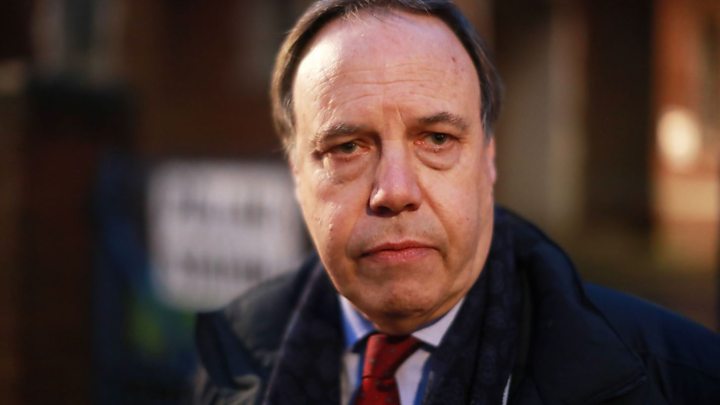
Media playback is unsupported on your device
In a quid pro quo for the SDLP move, Sinn Féin stood aside in South Belfast. The move helped pave the way for Claire Hanna, standing on a strongly pro-European platform, to unseat the DUP’s Emma Little Pengelly.
If Sinn Féin and the SDLP reached an informal understanding in Belfast, the dynamics were very different in Foyle, where the SDLP leader Colum Eastwood targeted the outgoing Sinn Féin MP Elisha McCallion.
Mr Eastwood made great play of the need for pro-EU voters to have their voice heard in the House of Commons, justifying the inconsistency in his party’s anti-abstentionist message by quipping that, in North Belfast, he would rather have Mr Finucane sitting in his house than Mr Dodds sitting in the House of Commons.
One factor which may have prompted pro-remain voters to swing behind the SDLP was the certainty that their one voice in the Commons chamber in the previous parliament would no longer be present.
In North Down Lady Sylvia Hermon announced her retirement, saying it had been a difficult decision. At the start of the campaign the arithmetic seemed to favour the DUP, which had trailed Sylvia Hermon by only 1,000 votes in 2017.
But by the end Alliance had repeated their European election surge, putting on a nine percentage point increase in their vote share and securing an MP in North Down with the victory of the party’s deputy leader Stephen Farry.
Mr Farry quipped that loyalist posters claiming a vote for Alliance was a vote for the IRA had actually helped get his vote out.
Elsewhere, the results were largely the same again, with the exception of Upper Bann, where the retirement of David Simpson created an opportunity for the DUP MLA Carla Lockhart. But both the big two parties took a hit to the size of their majorities and overall vote share.
Sinn Féin and other “civic” nationalists claimed the European and Westminster election results provided evidence that the British government should consider calling a “border poll” on a united Ireland, whilst the Irish government should encourage an all-island conversation about what a new “agreed Ireland” should look like.
The fact that Irish unity would (like German reunification) provide a quick way back into the EU added an extra element to this argument. However, neither London nor Dublin were convinced that the evidence of a majority wanting to change Northern Ireland’s constitutional status was convincing enough to consider triggering the referendum mechanism contained in the Good Friday Agreement.
As the year drew to a close public dismay at the Stormont standoff turned into seething anger over its impact on a health service which has the longest waiting lists in the UK.
Nurses and other health workers took industrial action in pursuit of pay parity with their counterparts in Great Britain in the middle of the December Westminster election campaign. This piled the pressure on both the DUP and Sinn Féin as they entered yet another talks process at the end of the year.
Both the British and Irish governments pushed for a breakthrough in the stalemate. Sources indicated a renewed sense of hope that a deal could be sealed early in the New Year.
However on a rain soaked 19 December night, both governments took the extraordinary step of identifying the DUP as the one party who they claimed remained unwilling to sign up to a package which could see devolution restored.
The DUP denied it was scuppering progress, but found itself in the uncomfortable position of being pitted against two governments and four parties.
During the December talks, the former Conservative Chief Whip Julian Smith was occupying the hotseat at Stormont House.
Most local parties recognised him as a more serious political operator than his predecessor Karen Bradley, who was hampered both by a lack of detailed knowledge about Northern Ireland and the dependence of her mentor, Theresa May, on the DUP.
Mr Smith took over from Mrs Bradley in July, when Boris Johnson replaced Mrs May. He publically disagreed with Downing Street over the wisdom of proroguing parliament, but kept his post after the December election.
Both Mr Smith and the former Northern Ireland Secretary, Lord Hain, played a key role in ensuring that the legislation required to ensure survivors of historical institutional abuse get compensation did not fall foul to the snap election.
The HIA law wasn’t the only way in which Westminster made a difference to people’s lives in Northern Ireland, despite the government’s reluctance to introduce direct rule.
Amendment
MPs radically amended a bill intended to give civil servants extra flexibility to run Stormont departments. By the time the measure passed into law it ushered in the legalisation of same sex marriage, major changes to the previous strict regime covering abortion and the authorisation of payments for those seriously injured during the Troubles.
The legacy of the Troubles remains a hotly contested issue. In July a majority of those who responded to a NIO consultation rejected any amnesty or “statute of limitation” for soldiers. But the idea remained popular amongst Conservative backbenchers with military connections and in December Boris Johnson was still promising to take measures intended to avoid “vexatious prosecutions”.
In June, the North Antrim MP Ian Paisley faced fresh questions after a BBC Spotlight investigation alleged a Maldivian government minister paid for a luxury holiday he took with his family in 2016.
Mr Paisley survived a recall petition in 2018 triggered by allegations over another holiday in Sri Lanka.
In December 2019 he secured re-election on a reduced majority in North Antrim, after his leader Arlene Foster appeared to inadvertently confirm he had been subject to an investigation by the Parliamentary Commissioner for Standards.
Boris Johnson wasn’t the only new leader to take over the reins of his party during 2019. The Ulster Unionists also had a changing of the guard, with submarine commander Steve Aiken taking over from Robin Swann unopposed.
Mr Aiken steered his new ship in a more pro-Remain direction, but had an indifferent first election as leader, facing criticism for performing a U-turn on an early pledge to fight all Northern Ireland’s 18 seats.
Highly unusually, Sinn Féin held a contested internal election for the deputy leadership, with the former education minister John O’Dowd challenging the incumbent Michelle O’Neill. The party machine decided there should be no open hustings and initially kept the result secret.
Then, after weathering some negative scrutiny from outside observers, it revealed that Ms O’Neill had beaten Mr O’Dowd by a margin of two to one.
The SDLP faced some internal divisions of its own in February, with leading Brexit spokesperson Claire Hanna expressing opposition to a formal link with the Irish opposition party Fianna Fail. Ms Hanna resigned from the SDLP’s Assembly group, arguing that her party should maintain its relationships with a range of others, including both British and Irish Labour.
In March, the SDLP Fianna Fáil link was again called into question when the former party leader Mark Durkan agreed to run as candidate for the European Parliament for Leo Varadkar’s Fine Gael. Mr Durkan’s bid to get elected in Dublin ended in failure.
If these developments made the first few months of the year uncomfortable for the SDLP leader, all seemed forgiven at the end of 2019 as Colum Eastwod and Clare Hanna re-established the party’s position at Westminster.
In 2020 both the new SDLP MPs and their Alliance colleague Stephen Farry will face the challenge of how to justify their new roles since none of them are in a position to achieve their declared goals of “stopping Boris and stopping Brexit”.
Instead, as Mr Farry has put it, they will have to content themselves and their electorates with the more limited prospectus of “taking the rough edges off” Northern Ireland’s exit from the European Union.
